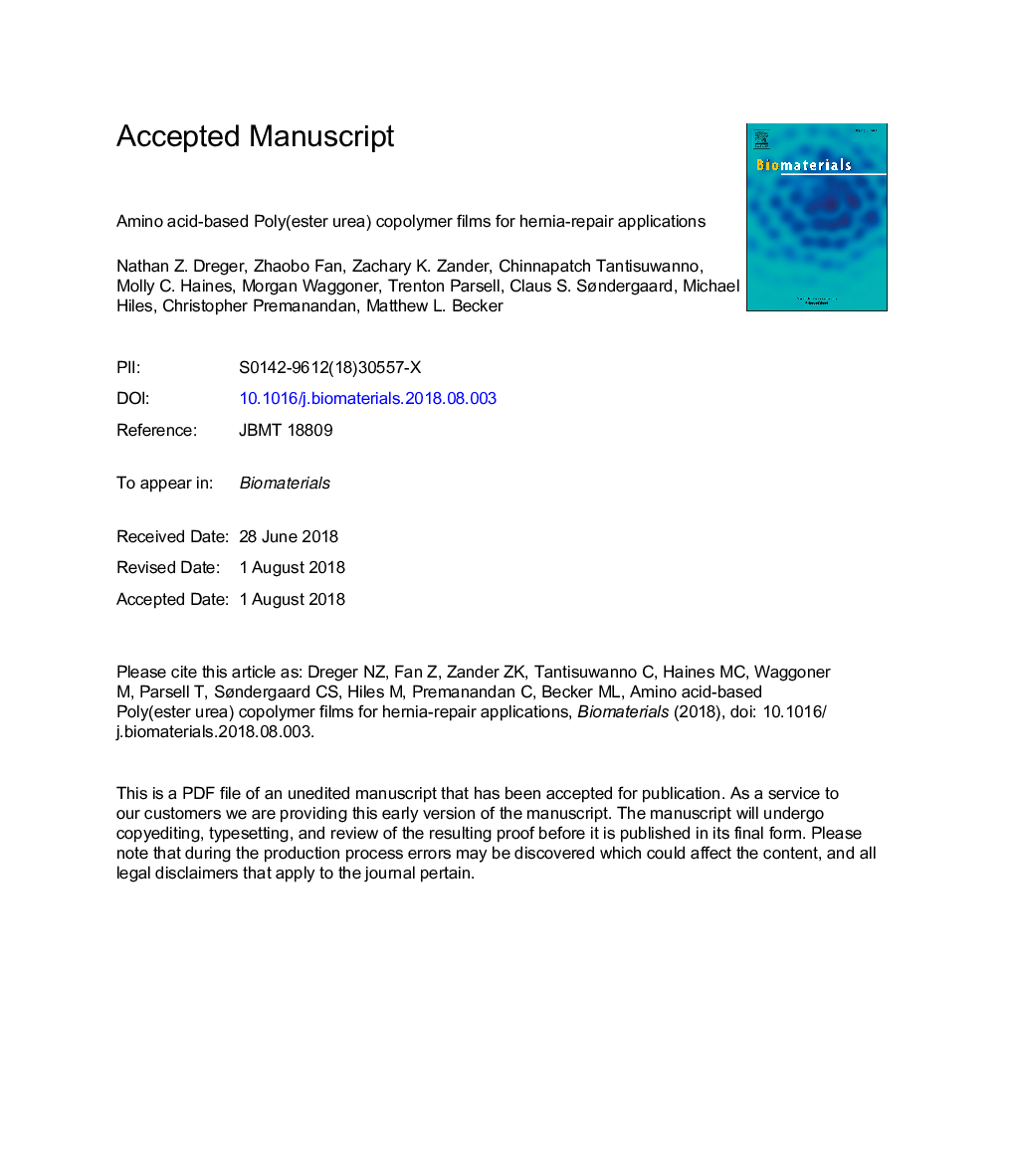| Article ID | Journal | Published Year | Pages | File Type |
|---|---|---|---|---|
| 6484278 | Biomaterials | 2018 | 30 Pages |
Abstract
The use of degradable materials is required to address current performance and functionality shortcomings from biologically-derived tissues and non-resorbable synthetic materials used for hernia mesh repair applications. Herein a series of degradable l-valine-co-l-phenylalanine poly(ester urea) (PEU) copolymers were investigated for soft-tissue repair. Poly[(1-VAL-8)0.7-co-(1-PHE-6)0.3] showed the highest uniaxial mechanical properties (332.5â¯Â±â¯3.5â¯MPa). Additionally, l-valine-co-l-phenylalanine poly(ester urea)s were blade coated on small intestine submucosa extracellular matrix (SIS-ECM) and found to enhance the burst test mechanical properties of SIS-ECM in composite films (force at break between 102.6â¯Â±â¯6.5-151.4â¯Â±â¯11.3â¯N). Free standing films of l-valine-co-l-phenylalanine PEUs were found to have superior extension at break when compared to SIS-ECM (averages between 1.2 and 1.9â¯cm and 1.2â¯cm respectively). Fibroblast (L-929) spreading, proliferation, and improved attachment over control were observed without toxicity in vitro, while a reduced inflammatory response at both 7 and 14 days post-implant was observed for poly[(1-VAL-8)â 0.7-co-(1-PHE-6)â 0.3] when compared to polypropylene in an in vivo rat hernia model. These results support the use of PEU copolymers as free-standing films or as composite materials in soft-tissue applications for hernia-repair.
Related Topics
Physical Sciences and Engineering
Chemical Engineering
Bioengineering
Authors
Nathan Z. Dreger, Zhaobo Fan, Zachary K. Zander, Chinnapatch Tantisuwanno, Molly C. Haines, Morgan Waggoner, Trenton Parsell, Claus S. Søndergaard, Michael Hiles, Christopher Premanandan, Matthew L. Becker,
